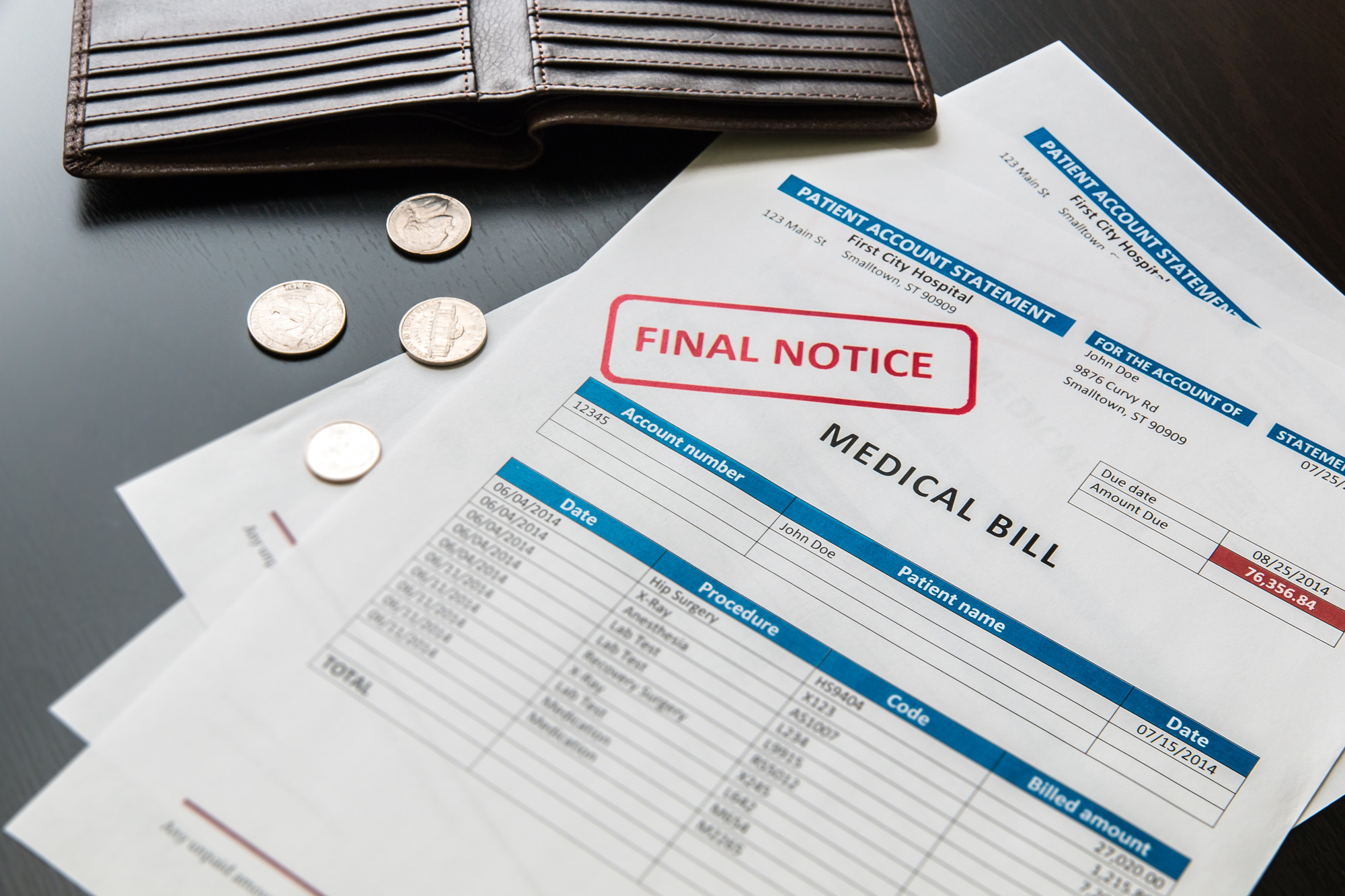How to Reduce Medical Bills and Save Money on Prescription Drugs

Drug costs and treatment procedures to keep you functioning in tip-top shape can put a dent in your budget.
Sometimes insurance helps. But when you need a specialist or a medicine that isn’t covered by your insurance, your out-of-pocket costs increase.
It’s hard to think that with generic drugs and technological advancements in the medical industry, people have to choose between taking care of their health or putting food on the table.
But in reality, medical debt is one of the top reasons adults file bankruptcy.
Before you have to make tough life or death choices about your health, let’s look at how to reduce medical bills and save money on prescription drugs.
Choose the Best Insurance Plan for Your Budget
There is no perfect plan for everyone. But as you choose your insurance plan each year, consider your current health and past medical bills as a guide for your insurance future.
- Do you spend more on prescriptions than co-pays or procedures?
- Are you trying to lower your premium?
- Did you have a change in income that affects the plan you can afford?
These are good questions to start with when deciding on the plan that’s best for your health situation.
If your employer provides a plan, you might have limited options. But your expenses might also be lower if your employer covers some of your insurance plan.
If you’re choosing from individual, non-employer plans, you’ll cover all expenses on your own. But you might have more flexibility to decide how much or how little coverage you need.
If you’re young and healthy, you can get away with a lower-cost plan. If you’re older or have more health issues, you’ll want more coverage. But it comes at a higher cost.
Exercise Options for Prescriptions
The older we get, the more prescriptions we seem to need to get through the day.
Some insurance plans won’t cover all the medications you need. You’ll pay the full cash price for these drugs.
Many plans put medications on different “schedules”. They cover more common medications at a lower cost to you. But pricier medications have a higher out-of-pocket expense for you.
Shop around and use different options when filling prescriptions for routine medications.
Go Generic
If your doctor says it’s okay, ask for the generic version of your medication at your pharmacy. Generics are widely available for many routine medications.
In many cases, your body responds the same to the generic version as it would to the brand-name version. And you’ll save money by going with the generic.
Buy in Bulk
If your insurance plan offers a 90-Day option for filling medication at a lower cost than a 30-Day supply, have your doctor write prescriptions in 90-Day batches.
This is often done by having your medications shipped to you. You’ll receive your 90-day supply in the mail.
But some pharmacies fill 90-day prescriptions, too. Check with your insurance plan and your pharmacies to find the best way to fill your medications at the lowest cost to you.
Ask for Samples
Your doctor has choices when prescribing medication for your illness. It is not uncommon for your doctor to prefer medications provided by drug sales reps.
Sales reps bring samples to doctors to help sell their products.
When your doctor prescribes a medication, ask for samples. Chances are, they have a few doses in a sample closet in their office.
Even if it’s a few days worth of your medication, this saves you money on the balance of what you need to fill the complete prescription.
Shop Around
If your insurance doesn’t reduce the cost of your prescriptions, take your business elsewhere.
Your insurance plan might not cover many maintenance pain medications and other drugs. But rules and regulations aren’t always the same for countries outside of the U.S., like Canada and Mexico.
Be aware of the risks when ordering medications from another country. Choose a certified pharmacy regulated by the government of that country to help ensure you receive quality medication.
Ask for Procedure Pricing
Many people aren’t aware that you can ask for procedure costs to plan your budget. But it pays to do some research if you are facing an upcoming procedure.
Save money on medical procedures by checking the price before scheduling it. Ask about doctor and hospital fees. Know how long you’ll be in the hospital and what your length of stay will cost.
Ask your doctor for other options or get a second opinion. If a co-pay for another doctor visit saves you from an expensive procedure, it’s worth paying that extra co-pay.
Is a hospital stay necessary? Or could an out-patient procedure work just as well.
Ask about discounts. Sometimes doctors will discount services when paying cash for medical care vs. going through insurance.
Compare prices using insurance and in-network services vs. paying out of pocket or a different treatment plan.
You are entitled to know everything about your procedure, including costs before scheduling anything.
Understand Your Medical Bills
Learning how to read medical bills can help you find expensive errors and save money.
The summaries you receive from your insurance provider won’t include a detailed inventory of your office visit or your medical procedure. Ask your doctor or hospital for an itemized bill.
You might not believe what hospital bills include after a surgery or emergency stay. Everything from over-priced band-aids to medications you had at home but the hospital provided anyway will show up in the details.
Take the time to understand your bills and ask questions if anything doesn’t seem right.
Know How to Reduce Medical Bills for Good Health
Staying healthy can be expensive. But knowing how to reduce medical bills doesn’t mean you have to compromise your health.
If you still find yourself needing more help for medical expenses, consider other ways to add to your income while you heal.
Remember: one of the best ways to save on medical expense is to choose a healthy lifestyle. Save money on health expenses by eating well, exercising regularly, and getting plenty of rest.



